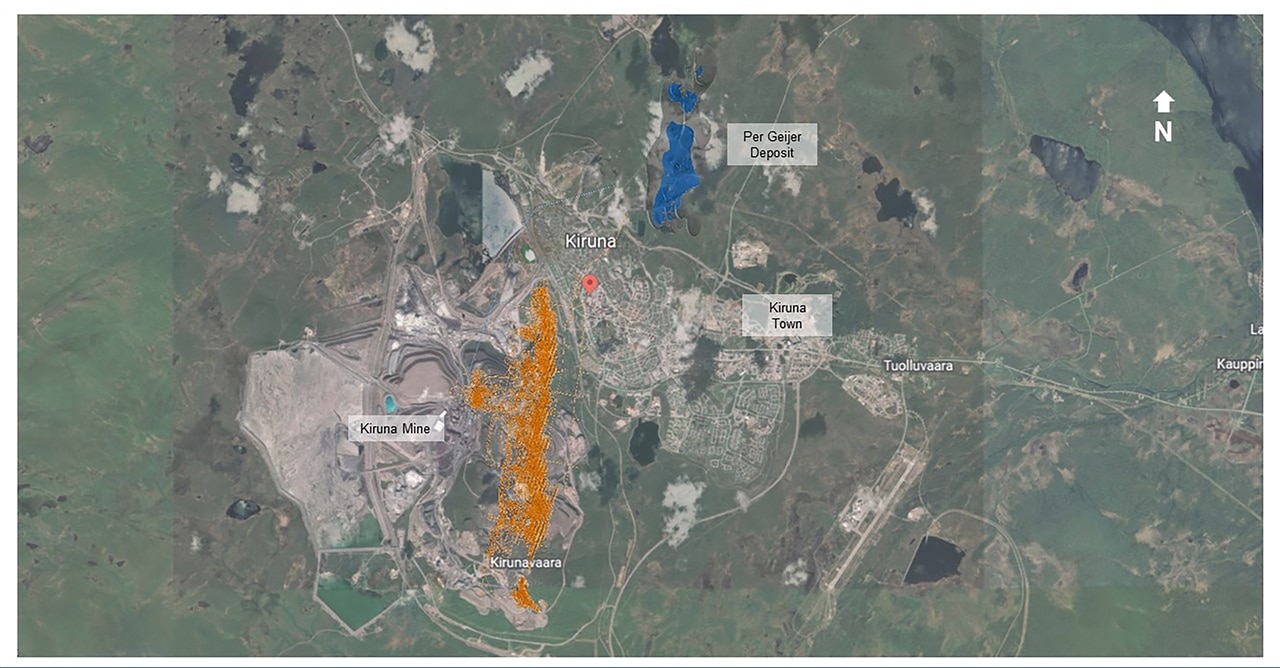
The deposit of rare earth minerals is shown on the map. (Image Credit: LKAB)
Europe could become less dependent on China for rare earth minerals thanks to the recent discovery of an estimated one million tonnes of rare earth minerals in Kiruna, Sweden. China is home to 60% of the world's mined rare minerals, with the refinery ultimately setting its market dominance. In that case, China has 90% of the mineral-processing capacity for lithium, cobalt, and nickel.
European Commission president Ursula von der Leyen suggested a balance in the playing field by “de-risking, rather than decoupling” from the second-largest economy in the world. Although Europe is 98% reliant on China for crucial minerals while shifting to clean energy, Ursula highlighted the European Union’s disparity toward the United States' trade with China.
These rare minerals are used in varying applications, such as electric vehicles, wind turbines, and defense equipment. According to Air & Forces magazine, missile guidance systems (magnets), aircraft, tanks, disk-drive motors, satellite communications, and radar systems all feature rare earth elements. “These elements used to come from the United States,” the publication wrote. “From the 1960s to the 1980s, the US was the global leader in rare earth mining and production. That is no longer the case.”
In 2040, the International Energy Agency expects to require additional mineral input (six times) while worldwide nations attempt to hit their net zero emissions goal by 2050.
The first step in the supply chain involves mining rare earth minerals. Extracted minerals must be processed into high-quality materials and products in demand by Europe's manufacturing industry. Those crucial materials can help with Europe's "green transition." However, China's dominance increases as we go further down the supply chain.
Finding this huge rare earth element deposit could lead to Europe reducing its reliance on Chinese imports. Even then, the EU has already made progress by restructuring parts of its value chain.
Although the EU wants to continue its strong trade with China, it has concerns about relying too heavily on Chinese technologies in some sectors. However, it's expected to take 10 to 15 years for Sweden's rare earth minerals to land on the market. That's because it will take years to begin exploring the site, and the project faces potential backlash due to the environmental impact it may cause.
Have a story tip? Message me at: http://twitter.com/Cabe_Atwell

